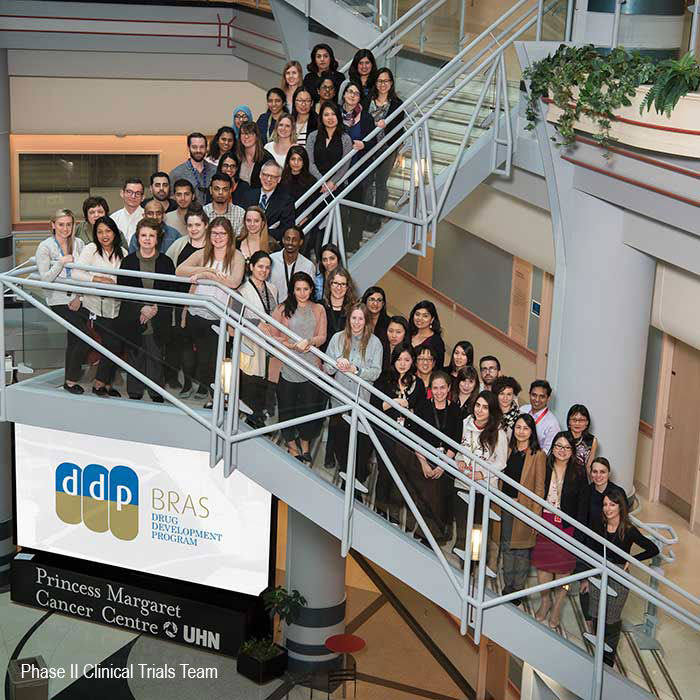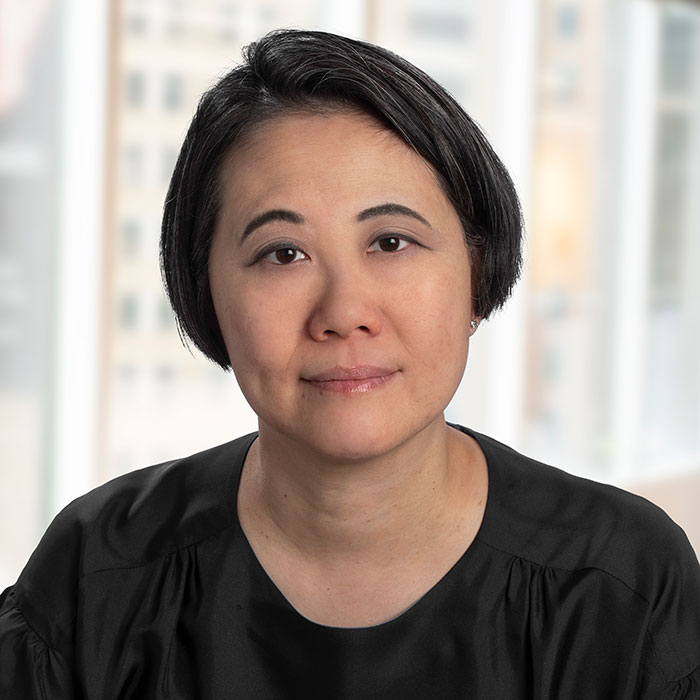Phase ll
Clinical Trials
Clinical trials are important in science and research because they are the most rigorous way to answer two important questions. Is a new drug or a new treatment safe and is a new drug or a new treatment better than the existing standard of care? Clinical trials help in making critical advances in cancer research. Once a new drug has passed successfully through a Phase l clinical trial, then it proceeds to Phase ll.
Established in 2001, The Princess Margaret’s Bras Drug Development Program’s Phase ll Clinical Trial Consortium is one of seven sites – and the only site outside of the U.S. to have received funding by the Nation Cancer Institute. Led by Dr. Amit Oza, the consortium’s mandate is to develop leading-edge clinical trials through collaboration with other cancer centres across Canada.
“Through that mechanism, we created a network so we could efficiently conduct early phase clinical trials. We have been able to successfully bring cancer agents in the earliest of developmental stages to the clinical trial settings, which would otherwise be unavailable to Canadian patients”, says Dr. Oza. “For nearly two decades we have been able to develop, design and execute clinical trials with a high degree of rigour, and contribute important new knowledge regarding the biology of cancer that has helped change the paradigm of care in several cancer types.” Through that mechanism, more than 100 clinical trials have been conducted over the past 15 years.

-
We have an excellent referral base because we have a big catchment area at Princess Margaret. We have the right science, we have the experts, and we have the support of the Institution who consider this an important program. All this together, plus the spirit of the Phase l Program, I think has taken it very far.
 Dr. Lillian SiuDirector Phase l Program
Dr. Lillian SiuDirector Phase l Program -
As a member of the Bras Drug Development Program family, I remain inspired by the outstanding physicians and researchers who are working together to overcome this disease. Each day, we work together to design the next-generation of cutting-edge clinical trials that are helping us understand how cancer begins, grows and ultimately, how we can stop it.
 Dr. Stephanie Lheureux MD, PhD
Dr. Stephanie Lheureux MD, PhD -
The Bras Drug Development Phase l Program has been instrumental in providing data from first-in-class and first-in-human studies that has laid the foundation for the subsequent development of many anti-cancer agents, some of which are now considered the standard of care in several cancer types. This is a strong clinical translational program that has had a major influence on early phase clinical trials in Canada and trained many leaders.
 Dr. Amit OzaDirector of the BRAS DDP
Dr. Amit OzaDirector of the BRAS DDP -
I could never have envisioned building a program quite like this,” Lillian admits. “Everybody feels such purpose. They know what they’re doing is important and they don’t want to fail anyone: patients, colleagues, or the program. They don’t want it to lose its cohesiveness, its quality. It’s definitely considered one of the top programs, not just in terms of science and research, but in terms of operational efficiency, quality and high standards. And yes, I’m saying this because it’s ours, but I think if you asked our peers, they would say the same.
 Dr. Lillian SiuDirector Phase l Program
Dr. Lillian SiuDirector Phase l Program -
The dedication of our physicians, nurses and staff continues to be my driving motivation for changing how we understand this disease. Importantly, it is my patients that remain my inspiration and my daily reminder that better is a choice. Every day we must choose to do better, so that we ask better questions and ultimately, do better for our patients. This is what they deserve and what we are joined by as a community of researchers.
 Dr. Stephanie Lheureux MD, PhD
Dr. Stephanie Lheureux MD, PhD -
First, what has the Bras Drug Development Program achieved over the past 20 years? Yes, it’s 20 years! The program which started with four doctors and a manager, has grown into Canada’s largest and premier drug development program with 10 doctors and more than 80 staff including: nurses, coordinators, managers, fellows, and scientists. Importantly, the group has treated more than 5000 patients on over 200 clinical trials, developed and led by Bras DDP investigators from Princess Margaret and consortium sites throughout Canada.
 Dr. Amit OzaDirector of the BRAS DDP
Dr. Amit OzaDirector of the BRAS DDP
